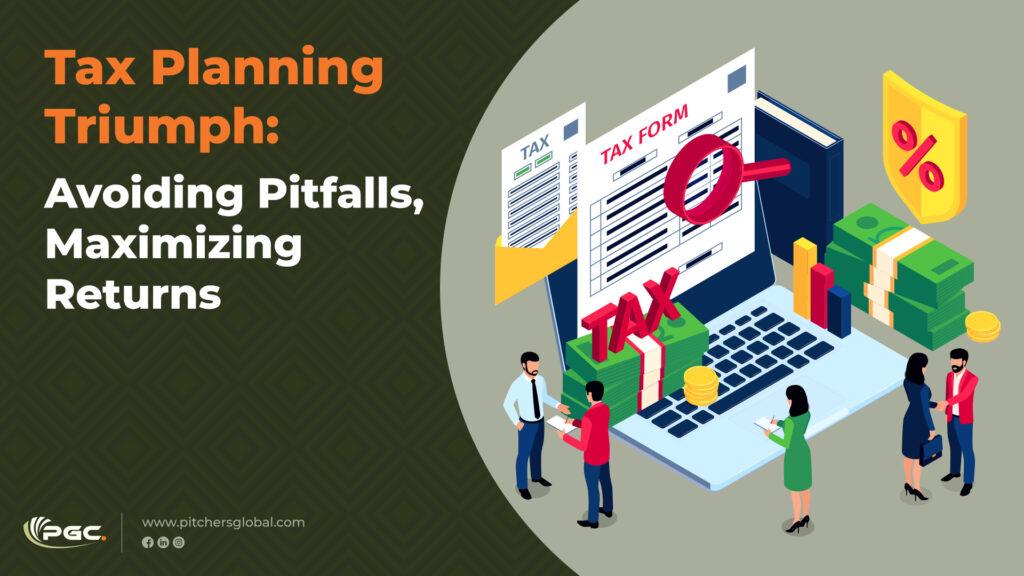Tax planning is not just a once-a-year chore; it’s a critical aspect of financial management that can significantly impact your bottom line. However, many individuals fall into common traps that could cost them dearly in the long run.
In this blog, we’ll explore some of the most prevalent tax planning mistakes and provide actionable tips to help you navigate the tax landscape more effectively.
Tax Planning Triumph
Ignoring Existing Investment Opportunities

One of the biggest blunders individuals make is overlooking existing investment avenues eligible for tax deductions. Before rushing into new investments, assess whether you’ve maximized existing options like EPF contributions and tuition fee deductions. By leveraging these opportunities, you can optimize your tax savings without unnecessary additional commitments.
Rushing Into Long-Term Investment-Cum-Insurance Plans

Investment-cum-insurance policies may seem like a convenient option, but they often come with drawbacks such as lengthy commitments and subpar returns. Instead of hastily purchasing these plans, consider alternatives like pure protection term plans and mutual funds. These options offer better flexibility and potential for higher returns, aligning more closely with your long-term financial goals.
Over Reliance on Credit Cards for Last-Minute Investments

Using credit cards to cover last-minute tax-saving investments can lead to a cycle of high-interest debt. It’s crucial to avoid this temptation and ensure you have sufficient savings to meet your tax obligations. By planning ahead and budgeting effectively, you can minimize the risk of falling into a debt trap and maintain financial stability.
Procrastinating Until the Last Minute

Perhaps the most common mistake is delaying tax-saving efforts until the eleventh hour. Waiting until March creates unnecessary stress and limits your options, potentially resulting in missed opportunities and sub-optimal outcomes. Instead, adopt a proactive approach by spreading your investments throughout the year. Whether starting an SIP in April or gradually increasing contributions to retirement accounts, a systematic approach can help you maximize tax savings while mitigating risks.
Tax Planning – Conclusion
Effective tax planning requires foresight, diligence, and strategic decision-making. By avoiding common mistakes and implementing proactive strategies, you can optimize your tax savings and lay the foundation for long-term financial success.
Remember, the key is staying informed, organized, and proactive. With the right approach, tax planning can become a powerful tool for building wealth and securing your financial future, and this is the exact reason why you should get in touch with Tax Experts like us, Pitchers Global so that you can focus solely on building your business.
